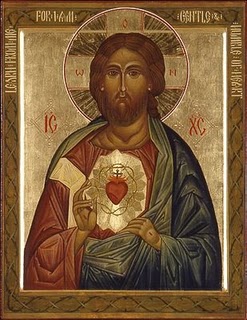

Icon of Jesus Christ
 An Old Catholic Jurisdiction
An Old Catholic Jurisdiction
|
Home |
About Us, Our History, and Beliefs
|
Liturgy |
Sacraments |
Catechism |
Mass Schedule|
Churches & Missions|
|
Our Clergy|
Vocations |
Prayers & Devotions |
To Join Our Church |
Ethics Courses |
Contact Us |
 |
::: ETHICS COURSE ::: |
 |
|
- ETHICS COURSE FOR SECULAR & NON-SECULAR INDIVIDUALS -
- WORKING WITH THE GOVERNMENT -
- COMMUNICATING IN THE PUBLIC WORLD -
- FOR PERSONAL SELF-IMPROVEMENT -
UPDATED AS OF 01 SEPT 2023
Thank you for coming to our Church web site for information about "ethics" and what it means in both a secular and non-secular world, a place where boundaries meet the real world, and should be applied to real-world expectations. We are not here to proselytize you and convince you to join our Church or any other Church or to convert you to any specific religion. This Ethics Course is a religious-neutral, safe place, and the ethics course you take is not founded on religious beliefs, but what civil society and the law demand of you as a person living in society in the free world.
eth·ics /eTHiks/
noun
1. moral principles that govern a person's behavior or the conducting of an activity.
2. the branch of knowledge that deals with moral principles.
WHAT ACTUALLY IS "ETHICS"?
Ethics is the principal of society morals where a person's conduct shows who he or she is as a person and what their honesty and integrity is. Ethics applies to a wide range of conduct wether in business or personal and family life. Ethics has a morale code embedded within it of an assemblance of right and wrong which discerns a right from wrong in a person's conduct when the right and wrong boundary line is blurred.
COURSE ABSTRACT
The Church offers two (2) types of ethics courses: (1) For Non-Religious Persons (secular); and (2) For Religious persons (non-secular - relating to or involving religious or spiritual matters). The Church ethics course is offered to for a person to improve their actionable thing and action skills when dealing with others in government, business and personal environments.
This course ensure that those persons taking the course become fully aware of the ethical and legal privileges and constraints under which they are to carry themselves as a member of society.
A sampling of some of the topics discussed include definitions of boundaries; resolving conflicts between ethics and the law; professional competence; boundary crossings vs. boundary violations; multiple relationships; sexual misconduct; bribery; what constitutes illegal gift-giving; privacy and confidentiality in the contemporary; ethical boundaries; financial relationships; various situational models for ethical decision making; and more.
LEARNING OBJECTIVES
The learning objectives in this course deal with personal, one-on-one interactions with non-governmental persons and governmental persons in various situations from personal to business issues. Several of the topics covered will address and include, but are not limited to, the following:
- 1. Distinguish between the concepts of law and ethics in society;
- 2. Identify ethical steps to take when the law and ethics are in conflict in various real-life situations;
- 3. Describe circumstances under which certain actions in relationships that would be
considered unethical;
- 4. And other ethics-goal objectives.
If you are interested in taking the Ethics Course, please contact the Ethics Department for more information at: ethicscourse@cccww.org.
|
Home |
About Us, Our History, and Beliefs
|
Liturgy |
Sacraments |
Catechism |
Mass Schedule|
Churches & Missions|
|
Our Clergy|
Vocations |
Prayers & Devotions |
To Join Our Church |
Ethics Courses |
Contact Us |
Copyright © ™ ® 1997 - 2023 by Christ Catholic Church - Worldwide Synod
|
| |